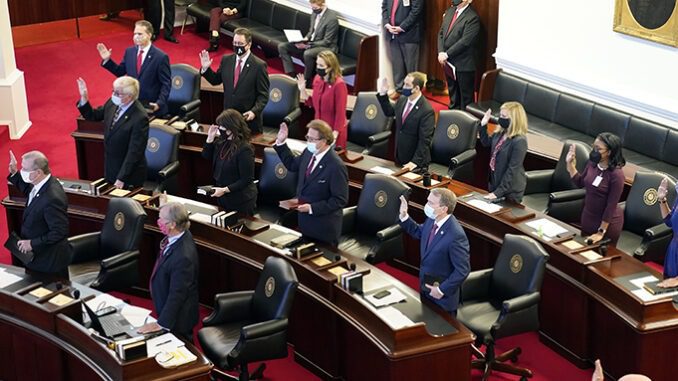
RALEIGH — A bill passed by the N.C. Senate seeks to expand the number of low-income students that can participate in the state’s popular Opportunity Scholarship Program.
The Opportunity Scholarship Program (OSP) grants funds to eligible families for private school tuition. Funds are disbursed by the N.C. State Education Assistance Authority (NCSEAA).
Senate Bill 671, titled Changes to the K-12 Scholarship Programs, would increase the OSP’s annual amount from the current $4,200 per school year to 90% of the average state per-pupil allocation for average daily membership in the prior fiscal year. Additionally, the OSP’s income threshold would be raised from 150% to 175% of the federal reduced-price-lunch level.
The Special Education Scholarships for Students with Disabilities and Personal Education Savings Accounts are combined in the bill to create a Personal Education Student Accounts for Children with Disabilities.
The bill’s primary sponsors are Sens. Michael Lee (R-New Hanover) and Deanna Ballard (R-Watauga), who are the co-chairs of the Senate Education Committee, as well as Sen. Amy Galey (R-Alamance).
The bill passed on May 4 with all 28 Republicans voting in favor and a lone Democrat, Kirk deViere (D- Cumberland), also supporting the measure.
During debate on the Senate floor, Sen. Natasha Marcus (D-Mecklenburg) spoke against the scholarships, claiming that, “public funds should be used for public schools and not for private schools that are completely unaccountable.” She also questioned private school teacher qualifications.
Marcus, who has sent one of her children to a private school and two other children to public charter schools, also claimed private schools “don’t have to demonstrate what their students are learning.”
“Whenever someone says you should give money to the schools, I think the money should follow the child,” Lee said during debate. “Parents should be the ones to decide what is in the best interests of their children.”
Another change the bill makes is lifting the cap on the number of awards the NCSEAA can give to eligible students each school year. The NCSEAA is also granted the ability to contract with a nonprofit corporation in order to conduct marketing, outreach services and provide scholarship application assistance for parents and students.
Mike Long, the president of Parents for Educational Freedom in North Carolina, applauded lawmakers for their efforts as did parents who spoke during a press conference in support of the bill.
“Now more than ever, families, parents and students in our state should be empowered through more choices in education, not less,” said Long.
PEFNC is a non-profit organization that “advocates for quality educational options through parental school choice.”
“It was life changing. You could see the difference in my children within months of being at the school,” Melanie Osborne, a mother of five, said at a press conference in support of the bill.
Osborne’s oldest daughter has been accepted to Harvard for the upcoming fall term.
“All parents should be able to choose what is best for their child,” Osborne said.
Gov. Roy Cooper’s 2021-22 budget recommendation proposes significant cuts funding to the OSP, which currently serves around 16,000 students. His budget recommendations include an $804 million increase to education spending as well as 10% raises for teachers over the biennium. Cooper’s previous budget proposals also attempted to remove funding to the OSP.
Last year, the N.C. Association of Educators (NCAE) filed a lawsuit to end the OSP; however, in March, N.C. Attorney General Josh Stein submitted a motion to have the case dropped based on lack of standing and failing to cite claims where relief could be granted. The dismissal motion was granted, marking a second failed lawsuit attempt by the NCAE. In 2015, the N.C. Supreme Court ruled that the NCAE had failed to prove the program was unconstitutional.


